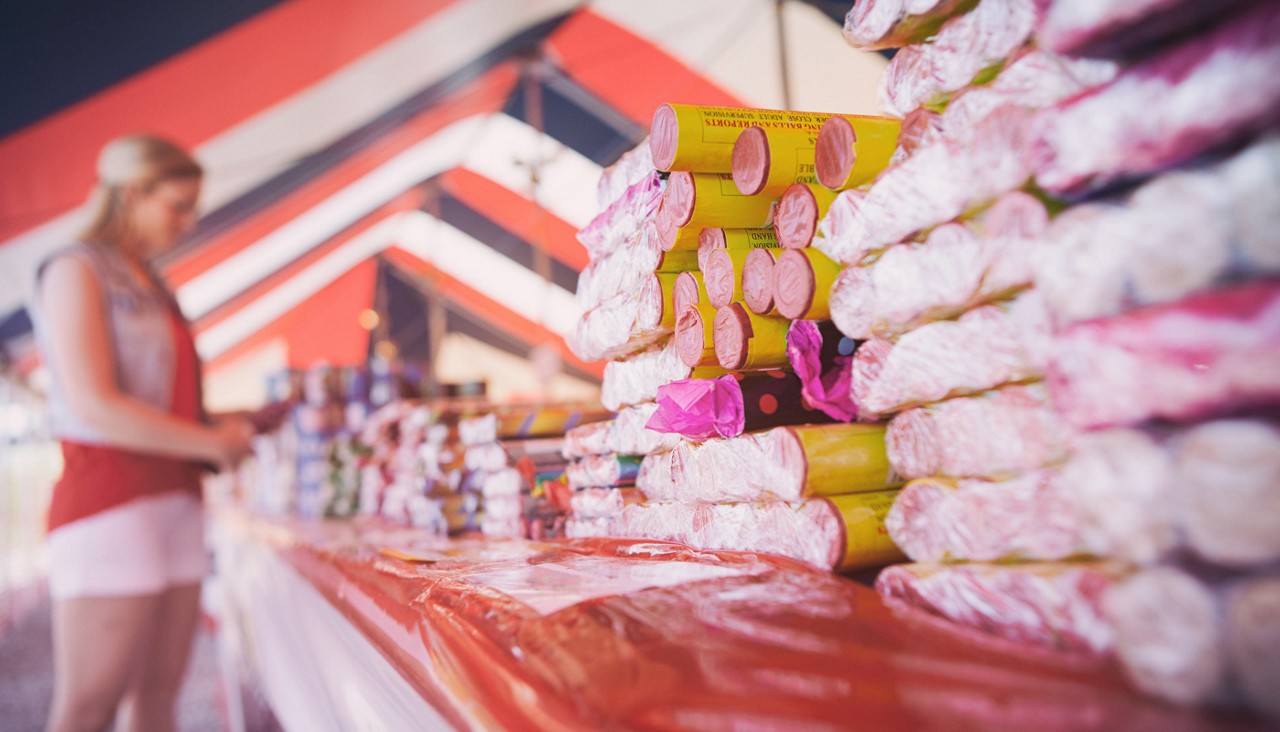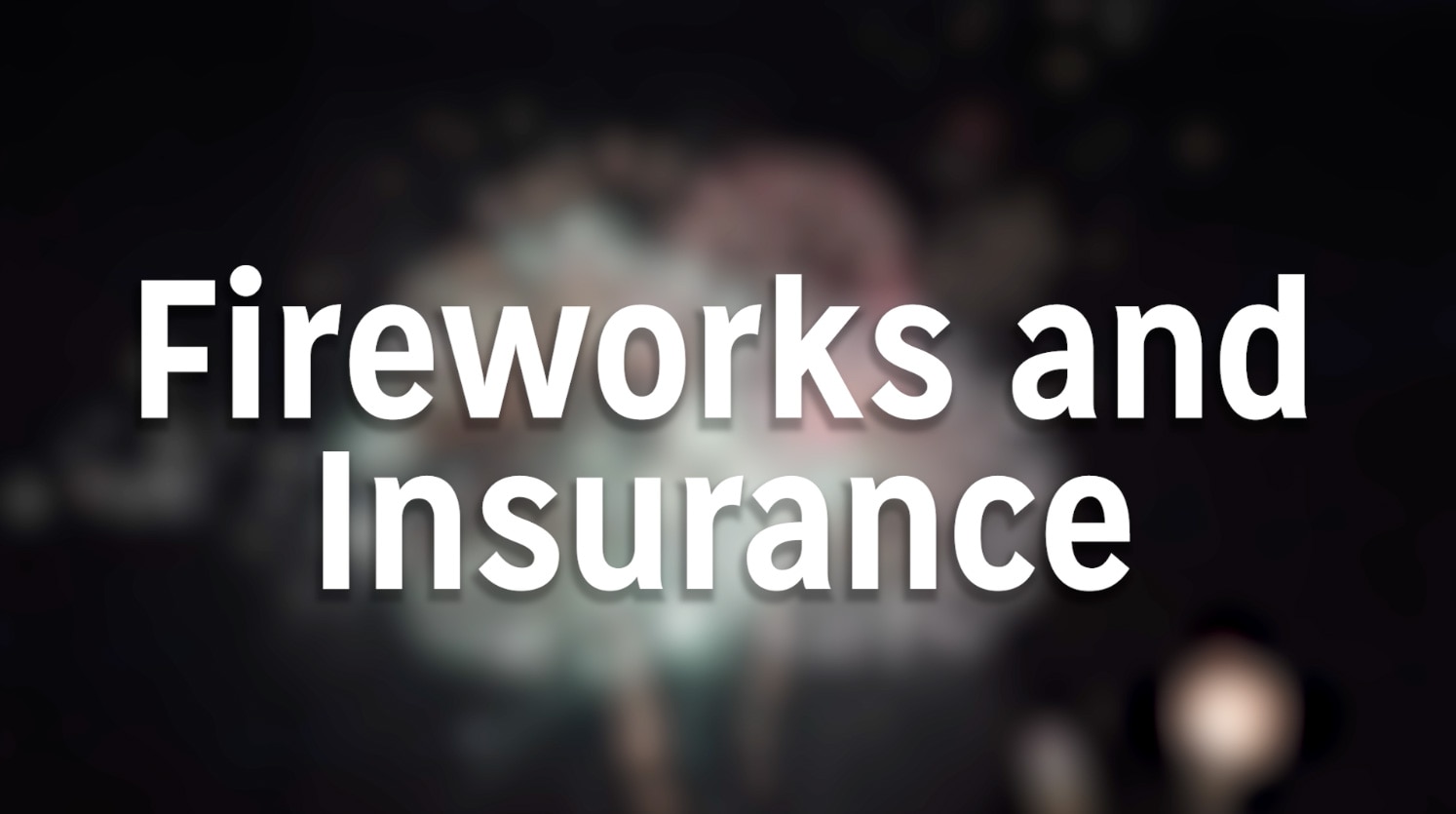To ensure you receive the best service possible,
please enter your zip code below:

Expect something more
Talk with an agent to review your coverage, identify any gaps and protect yourself from expensive damage.

We Americans love our celebrations, and if you think certain events aren’t complete without the excitement of some fireworks, you’re not alone. Weddings, sports wins, the arrival of the new year and, of course, the Fourth of July are all occasions that prompt revelers to punctuate their fun with the controlled chaos of fireworks. But when things go wrong, people and property sometimes fall victim. So, whether you’re the one setting off the fireworks or you’re just a spectator, here’s what to know about the role insurance plays in cases of property damage or personal injury caused by fireworks.

According to the National Fire Protection Association, 2022 saw 31,302 fires caused by fireworks. In addition to 418 fires that went unclassified, there were structural fires (3,504), vehicle fires (887) and outside fires (26,492), all resulting in a whopping $109M of property damage. Even worse, personal injuries from fireworks led to 10,200 emergency room visits. Of those injuries, 29% were to hands and fingers and 35% were to eyes, face or other parts of the head. Perhaps most surprisingly, the National Safety Council, a leading nonprofit safety advocate, reports that nearly half of the fireworks injuries to children under 5 years of age are caused by sparklers, which burn at extremely high temperatures and tend to be much more dangerous than people think.
Fireworks aren’t the only way neighbors can unintentionally damage each other’s property. For example, who pays when your tree falls on your neighbor’s property—or your neighbor’s tree falls on your property?
Read moreIndividual states regulate the sale and use of consumer-grade fireworks, and those laws vary. Some ban all consumer fireworks; others prohibit certain types of fireworks, such as ones that launch into the air or explode; while still others permit most consumer fireworks. Before making any purchases or planning any displays, consult this national list of state laws regarding what is legal for consumer use where you live. It’s important to follow your state’s laws, because the legality of the fireworks—as well as their responsible use—will play a role in the consequences of any mishap.

While damage or injury from fireworks can happen despite your best efforts, insurance can play a role in helping protect you from the costs associated when a loss occurs. If you’re wondering, “How much does fireworks insurance cost?” you’ll be happy to learn that as a homeowner you’ve likely got some protection already in place. That’s because there are many times when homeowner’s insurance could cover fireworks damage. Here are a few scenarios.

Although the above examples show situations where insurance can help cover damages, there are specific circumstances that can disqualify fireworks-related claims. Most insurance policies will not cover damages caused by fireworks that are prohibited in your state. The same goes for injury or damage caused by reckless use, gross negligence or intentional damage.
Another summer staple besides fireworks is backyard grilling. Learn about common types of grills and get tips for maintaining them so yours can be the MVP of summer cookouts for many years to come.
Read moreBe sure to check your policy to determine the limits you have in place and to identify any exclusions to your coverage. If a fireworks mishap causes losses that exceed the limits on your homeowner’s insurance policy, you could be left paying the difference. An umbrella insurance policy could give you added liability protection.
Although the advice of The National Safety Council is to leave the lighting of fireworks to the professionals, their list of safety tips is a must-read for anyone considering using legal fireworks.
Fireworks can cause significant harm when mishandled. According to the National Fire Protection Association, 2022 saw over 31,000 fires and $109 million in property damage caused by fireworks. Additionally, 10,200 emergency room visits occurred due to fireworks injuries, with children under 5 particularly at risk from sparklers.
The National Safety Council advises leaving fireworks to professionals. If using legal fireworks, always follow safety tips such as:
Fireworks laws vary by state. Some ban all consumer fireworks, while others allow most types. Check your state's specific laws before purchasing or using fireworks, as legality impacts insurance claims in case of accidents.
Yes, homeowners insurance can cover fireworks-related losses in specific scenarios:
Professional fireworks events are usually insured. If you are injured, the event organizer’s professional firework event insurance generally covers mishaps.
Yes, insurance will generally not cover:
If your fireworks-related damages exceed the limits of your homeowners insurance, an umbrella policy could offer additional liability protection. Review your policy for coverage limits and exclusions.
Staying informed and prepared can make celebrations safer and avoid hefty costs from unexpected mishaps!
Expect something more
Talk with an agent to review your coverage, identify any gaps and protect yourself from expensive damage.
This information is being provided for general informational purposes only. The Auto Club Group does not assume any liability in connection with providing this information.